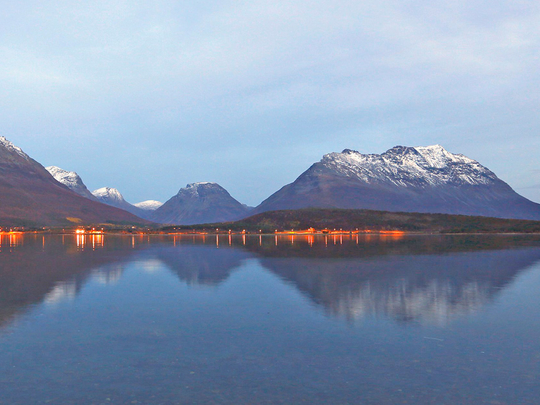
When Emirates airline’s first direct flight from Dubai to Oslo landed in the Norwegian capital early in September, there were many reasons to celebrate.
Emirates, the biggest Arab airline, became the first Middle Eastern carrier to start daily direct flights to the fast-growing Scandinavian country. As an Arab, I felt delighted that an Arab company was building this link to Norway.
There was another reason, which I thought was an eye opener: it was also the first airline to arrive in Oslo, offering first-class service.
Norway is an oil-rich country and a wealthy place blessed with natural resources.
But when I spent a few days in the city, I got answers to my questions.
To put it simply, I believe Norway and its citizens have different priorities than people in many other parts of the world. They are investing and utilising their wealth for their future comfort. They continue to work hard. To me, it is a good example of economic success that needs to be studied; it can be adopted in other places.
I did not see Bentleys or Porsches, but I saw a parking lot for cars running on electric power. It is cleaner for the environment. I did not notice many people wearing designer clothes and accessories flaunting their wealth, but I witnessed people eating together in the cafes and restaurants, and socialising. Everybody was wearing “appropriate” clothing for their daily work and activities.
I did not see people texting while walking or driving in many other places, where I have even seen people attend official meetings while their eyes are on their phones. In many places away from Norway, I have seen people sitting at the same table and not talking to one another. All are busy with their phones. Frankly, I consider this scene annoying.
In Norway, people have not lost their manners and social skills. I saw people use their phones only to call somebody or to answer someone’s call. At the end of their working day, or before going to work, they exercise — be it jog, run or cycle — and enjoy their social life while freeing their minds from burdens and concerns.
I wondered if they really have burdens. They seemed to me to be comfortable. Forbes confirmed my conclusion. According to the magazine, Norway ranked in 2013 as the happiest country on earth for the third consecutive year. With a GDP per capita of $54,000 (Dh198,180), it is among the richest countries in the world and ranks first in social capital and second in safety and security.
Norway’s is a mixed economy, with an active private sector, large public sector and a general social security net. The government controls key sectors, such as oil, which is one of the main natural resources of the country and accounts for nearly 30 per cent of government revenues. Norway is the third largest natural gas exporter in the world. Other sources of natural wealth include fish, forests and minerals.
True, their country imposes high taxes, but in return Norwegians get many privileges. Education and health care are free.
Oil was discovered in Norway only in early 1970s. Today, the Scandinavian country has the biggest sovereign wealth fund in the world, worth nearly $800 billion. According to a BBC report, it “is big enough to make every citizen a millionaire in the country’s currency, the Kroner”.
Norway has a population of five million; nearly 600,000 of them live in the capital. The labour force was estimated in 2014 at 2.7 million, while the unemployment rate was 3.6 per cent in 2013. I was told that those who were unemployed preferred the option of not working, and not because of lack of jobs in the country.
Power is hydro-electrically generated, and it is absolutely safe to drink the tap water. One Norwegian stressed that the tap water was made so clean in order to discourage people from buying bottled water and thus help save the environment! I noticed that their streets are clean.
The cost of living is very high in Oslo. A cup of coffee costs nearly $10. But Norwegians are paid well and can afford a good quality of life. Many do have winter and summer holiday homes or cabins.
They are a warm and friendly people. They travel a lot and have 46 airports in their country!
I am sure if I had stayed longer in Oslo, I would have discovered more fascinating features and economic facts about this unique country, which is a model of success.









